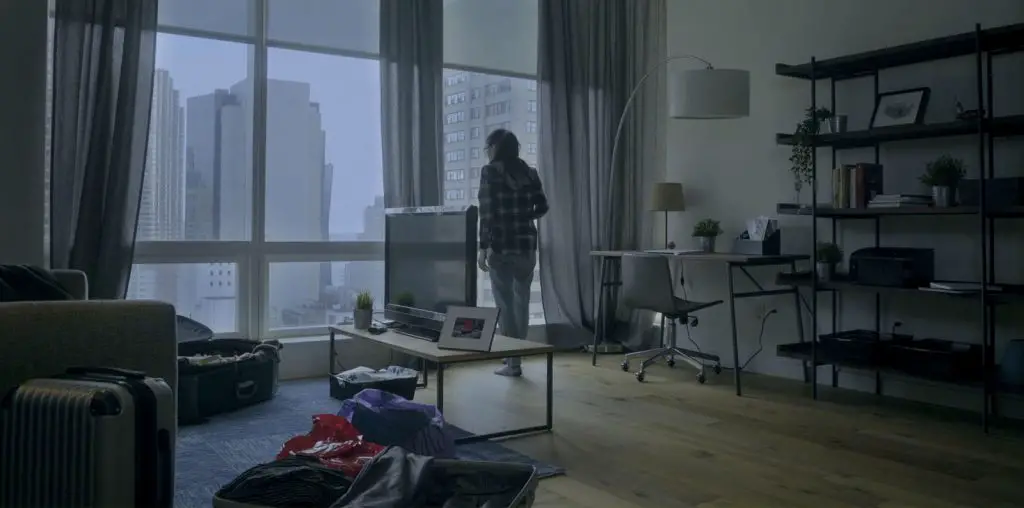
As a fan of Claire Danes, Patrick Wilson, and Hungarian cinematographers and directors, I went into “Evening” with much enthusiasm. I left the theatre feeling anything but enthused. Based on Susan Minot’s novel of the same name, “Evening” mixes reverie, flashbacks, and gorgeous cinematography to tell the story of a dying woman’s recollections of her past, specifically the wedding of her best friend decades ago.
The previews suggest that young Ann Grant (Claire Danes) and a Harris Arden (Patrick Wilson) character are responsible for the death of their friend Buddy (Hugh Dancy). The film certainly addresses this plot point, but it doesn’t delve into consequences of this event. I’ve skimmed the novel to get a sense of the structure in terms of when and how the past and present collide or transition into the other. Like the book, the film is non-linear, going back and forth between the time periods as the narrative deems appropriate.
The past consists of the weekend of Lila Wittenborn (Mamie Gummer) and Carl Ross’s (Timothy Kiefer) wedding and the circumstances that lead to the death of Lila’s younger brother Buddy. The present is comprised of Constance (Natasha Richardson) and Nina (Toni Collette) spending time with their mother (Vanessa Redgrave) on her deathbed. The conversations that take place in the present cover topics such as whether Nina is happy, whether Nina is ever going to settle down, and why she wants to know more about the people that her mother mentions during fits of half-sleep.
“Evening” explains to the viewer who the people are in Ann’s past. Constance and Nina never get the chance to access these visuals. There’s a brief segment where they are looking through their mother’s old letters and cards, but they don’t seem to find any photographs. The viewer learns about what Ann Grant was like as a young woman, her daughters do not. Nina gets a healthy dose of life lessons–too bad she’s not nearly as compelling. In fact, the past is a much more interesting place than the present; it’s certainly more pleasing to the eye.
The cinematography, courtesy of Gyula Pados, is fantastic, strikingly reminiscent of Edward Hopper and Maxfield Parrish paintings. Pados only has a dozen titles to his resume as a director of photography, but as “Kontrol” (Nimrod Antal, 2003) and “Fateless” (also directed by Koltai, 2005) demonstrate, he is more than qualified for the job. Furthermore, having worked with Koltai on “Fateless,” adapted from the novel “Fatelessness” by Hungarian author Imre Kertesz, Pados undoubtedly developed an awareness of the director’s tendencies and modus operandi on the film set.
“Evening” has so much going for it. A great cast, amazing visuals, and solid directing throughout. So why did I leave the film saying aloud to the parking lot, “I didn’t like it.” Susan Minot co-wrote the adapted screenplay with Michael Cunningham, who also wrote the novel on which “The Hours” (Stephen Daldry, 2002) was based. He also produced it. So whatever is wrong with the adaptation is “hard to pin down.” My perusal of Minot’s novel has convinced me that Koltai has effectively captured the tone of the source.
I found it very refreshing that the past and present do not meld into one another via tracking or pan shot of an object or crossing a threshold. Narratively, the film’s weakness had to do with what happened after Buddy dies. Aside from a lot of tears and a mother, played by Glenn Close, convulsing with grief, the whole concept of guilt as an emotion or legal consequence never surfaces.
The film does, however, convey the notion of regret but not in any significant kind of way. I guess it would’ve been too cliched if Nina’s curiosity takes over the furthering of the plot (and subsequently the scenes of the past) by discovering specific letters and photographs of the relevant people; and thus she pieces together what happened that weekend that would cause her mother to hover over it while she is breaths away from death.

